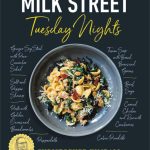
Customers say
Customers find the book provides a balanced history of American agriculture and is well-researched. They appreciate its readability, describing it as an excellent read.
Make It Yours – See Your Price On Amazon!
A quick rundown of this product’s key features:
At a time when food is becoming increasingly scarce in many parts of the world and food prices are skyrocketing, no industry is more important than agriculture. Humans have been farming for thousands of years, and yet agriculture has undergone more fundamental changes in the past 80 years than in the previous several centuries. In 1900, 30 million American farmers tilled the soil or tended livestock; today there are fewer than 4.5 million farmers who feed a population four times larger than it was at the beginning of the century. Fifty years ago, the planet could not have sustained a population of 6.5 billion; now, commercial and industrial agriculture ensure that millions will not die from starvation. Farmers are able to feed an exponentially growing planet because the greatest industrial revolution in history has occurred in agriculture since 1929, with U.S. farmers leading the way. Productivity on American farms has increased tenfold, even as most small farmers and tenants have been forced to find other work. Today, only 300,000 farms produce approximately ninety percent of the total output, and overproduction, largely subsidized by government programs and policies, has become the hallmark of modern agriculture. A Revolution Down on the Farm: The Transformation of American Agriculture since 1929 charts the profound changes in farming that have occurred during author Paul K. Conkin’s lifetime. His personal experiences growing up on a small Tennessee farm complement compelling statistical data as he explores America’s vast agricultural transformation and considers its social, political, and economic consequences. He examines the history of American agriculture, showing how New Deal innovations evolved into convoluted commodity programs following World War II. Conkin assesses the skills, new technologies, and government policies that helped transform farming in America and suggests how new legislation might affect farming in decades to come. Although the increased production and mechanization of farming has been an economic success story for Americans, the costs are becoming increasingly apparent. Small farmers are put out of business when they cannot compete with giant, non-diversified corporate farms. Caged chickens and hogs in factory-like facilities or confined dairy cattle require massive amounts of chemicals and hormones ultimately ingested by consumers. Fertilizers, new organic chemicals, manure disposal, and genetically modified seeds have introduced environmental problems that are still being discovered. A Revolution Down on the Farm concludes with an evaluation of farming in the twenty-first century and a distinctive meditation on alternatives to our present large scale, mechanized, subsidized, and fossil fuel and chemically dependent system.
Our Top Reviews
Reviewer: Cynthia Clampitt
Rating: 5.0 out of 5 stars
Title: If you want to know how far we’ve come…
Review: This is a great book for insight into how dramatically farming has changed in a relatively short time. Conkin does a masterful job of weaving together historic details, technology, and personal reminiscence to highlight the dynamics that drove the series of agricultural revolutions that started in the 1930s. Excellent read, if you’re interested in this aspect of how our world came to be the way it is today.
Reviewer: thomas cruff
Rating: 5.0 out of 5 stars
Title: Great history lesson.
Review: Great history and I’m 25 third generation farmer and I like how the book starts out in the 1930s and brings us up to the modern times of farming.
Reviewer: Art
Rating: 4.0 out of 5 stars
Title: Great survey of American agriculture
Review: Great, balanced history of American agriculture with a little bit of everything, personal farm experience, science and technology, organic vs conventional foods. Particularly deep on policy history which may require re-reading to fully appreciate for this non-social scientist.
Reviewer: Cary L. Holman
Rating: 5.0 out of 5 stars
Title: Thorough and very well researched.
Review: Conkin has surprisingly broad knowledge of many aspects of American agriculture. A very enjoyable read as someone who grew up and worked on a farm in the 1950s and 60s.
Reviewer: Stephen K.
Rating: 3.0 out of 5 stars
Title: A good read if you can overlook the politics.
Review: A interesting history of American agriculture,well researched and well written.I would have rated it higher but it was a little bit to political,which took away from the final product.
Reviewer: M. D.
Rating: 5.0 out of 5 stars
Title: Wonderful
Review: A deep and inviting look into why the American agriculture system looks the way it does. While much more prosaic in approach and not as revolutionary as the writings of Wendell Berry, by looking at the facts Conkin draws the same conclusions, problems, and solutions that we as Americans face in both our Agriculture and Culture.
Reviewer: Michael A. Hamil
Rating: 5.0 out of 5 stars
Title: Well organized and very interesting
Review: I found this book to be a complete view of farming and offered information on the history of farming and the laws which affect it, as well as the current application of federal regulations. Highly recommended for anyone in agriculture or farming.
Reviewer: Bill
Rating: 4.0 out of 5 stars
Title: And informative and well-written history of the rise of industrial agriculture.
Review: In this informative and well-written history of American agriculture over the last century the author weaves into his descriptions and summaries of the sometimes mind-numbing federal farm policies his personal recollections of life on a mid-20th century diversified family farm in east Tennessee. I would highly recommend this book as a fine introduction to our contemporary agricultural system. I have read it cover to cover twice and come back to it frequently as a resource. But it is not without faults. Published in 2008, some of the content (particularly with respect to the rise of the food movement and the economics of industrial agriculture) has become dated. The book would have benefited from consideration of the effect industrial agriculture has had on health in our culture, and while the author was generally balanced and fair in his assessment of government’s role in agriculture, I found his review of alternative agriculture in the final chapter to be unfairly dismissive. Even with those objections, I am unaware of any better history of this subject.
Price effective as of Apr 15, 2025 02:52:28 UTC
As an Amazon Associate Dealors may receive a commission for purchases made through these links.









